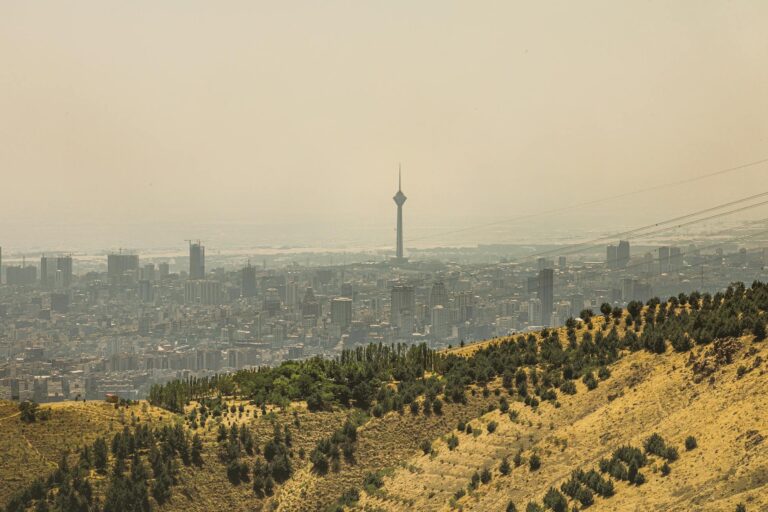Nvidia Just Bottled Earth’s Climate – Here’s What It Reveals!
Introduction
Ever wondered if we could predict the weather—not just next week, but years ahead? Like, really predict it? Nvidia’s latest project, this crazy thing they’re calling “Climate in a Bottle,” is trying to do just that. It’s basically an AI that simulates Earth’s climate in insane detail. Sounds cool, right? But here’s the thing—when tech gets this powerful, you gotta ask: what are we actually gonna do with it?
So, What’s This “Climate in a Bottle” Thing?
Okay, picture this: a digital copy of Earth’s climate, but one that lets you tweak stuff and see what happens—like a climate simulator on steroids. And it works fast. Traditional models take forever, but this? It’s like comparing a bicycle to a bullet train. Here’s why it’s different:
- Crazy detail: We’re talking about seeing weather patterns for a single neighborhood, not just the whole country.
- Scientists working together: They can all jump into this virtual lab (kinda like a video game) and share data without things breaking.
- Instant results: Change CO2 levels, and boom—you see the effects right away.
How the Heck Does It Work?
Generative AI – Like ChatGPT, But for Weather
This thing’s been fed decades of climate data—like every storm, heatwave, and weird weather event we’ve recorded. So now, if you give it today’s weather, it can spit out a prediction for next year’s monsoon season. Wild, right?
Omniverse – The Science Playground
Think of it like a multiplayer game where everyone’s a climate scientist. They can throw in satellite data, ocean temps, whatever—and it all just works together. No more fighting with incompatible files.
Raw Power – Nvidia’s Secret Sauce
This isn’t running on some old laptop. Nvidia’s H100 GPUs make it stupidly fast—like, what used to take months now takes hours. That’s the game-changer. Seriously.
What Can We Actually Do With This?
Science Gets a Turbo Boost
Imagine knowing exactly where a hurricane will hit—not just the coast, but the street. Or seeing how cutting down trees in the Amazon messes with rain patterns halfway across the world. The possibilities? Mind-blowing.
Saving Lives Before Disaster Strikes
Governments could use this to prep for disasters before they happen. Like evacuating a city days before a flood hits, not hours. That’s the kind of thing that could save thousands.
But… What Could Go Wrong?
Here’s where it gets sketchy. What if a company uses this to manipulate crop prices by predicting droughts? Or worse—what if militaries start simulating weather as a weapon? And don’t even get me started on data privacy. Scary stuff.
Yeah, It’s Not Perfect
Garbage In, Garbage Out
If the data’s bad—like those patchy 1800s weather records—the AI’s guesses could be way off. And let’s be real, historical data isn’t always reliable.
Not Exactly Cheap
Running this tech costs a fortune. Smaller countries might get left behind, which just makes the whole climate inequality thing worse.
The “Black Box” Problem
When the AI says, “Miami’s underwater by 2040,” how do we know it’s right? These models can be hard to untangle—like trying to read a doctor’s handwriting.
Where’s Nvidia Going With This?
At their big GTC event, Nvidia made it clear—this is part of their bigger Omniverse push. You can bet they’re talking to NASA and the UN. But Google’s DeepMind and IBM aren’t sitting around either. The race for climate AI is on.
Bigger Question: Is AI Our Climate Savior or Just a Distraction?
Some people think AI’s gonna save the planet. Others say it’s just flashy tech that lets polluters off the hook. Honestly? It’s probably a bit of both. But one thing’s for sure—we need rules before someone tries to “fix” the climate by melting the poles on purpose.
Final Thoughts
Nvidia’s “Climate in a Bottle” is seriously impressive. But now comes the hard part—figuring out how to use it without making things worse. So, what do you think? Who gets to control a tool like this? Drop your thoughts below—let’s argue about it.
Want to Dive Deeper?
- Nvidia Omniverse (because of course they’d link to themselves)
- GTC 2025 Sessions (if you’re into tech conferences)
- IPCC Climate Reports (for the real nerds)
Source: WSJ – Digital












